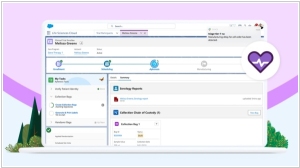Top 10: Hybrid Cloud platforms
Updated: July 30, 2023
Hybrid Cloud platforms are comprehensive solutions that combine the benefits of both public and private cloud environments, providing businesses with increased flexibility and scalability. These platforms allow organizations to run certain workloads and applications on private cloud infrastructure, while leveraging public cloud services for other tasks, based on their specific needs and requirements. Hybrid Cloud platforms offer seamless integration and data portability between the two environments, enabling businesses to optimize resource allocation and cost-efficiency. This setup also enhances data security and compliance, as sensitive data can be kept on the private cloud while less sensitive data can be stored on the public cloud. Hybrid Cloud platforms empower businesses to achieve a hybrid IT environment, where they can balance performance, security, and cost-effectiveness, ultimately enabling them to adapt and grow in a rapidly evolving digital landscape.
Some of the most popular hybrid cloud platforms are listed below.
See also: Top 10 Public Cloud Platforms
See also: Top 10 Public Cloud Platforms
2023. IBM acquires Apptio to double down on hybrid cloud services
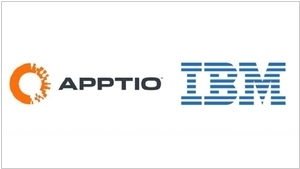
IBM has announced a significant acquisition that reinforces the hybrid cloud concept: they will invest $4.6 billion in cash to acquire Apptio. Apptio has developed a platform that enables tracking of data location and usage in hybrid environments, specifically focusing on financial and resource costs. As cloud architecture becomes increasingly widespread in organizations, it is evident that many of them are adopting a hybrid approach. They combine the use of Software as a Service (SaaS) in private and public clouds while maintaining certain products on their premises. IBM's intention is to integrate Apptio with their existing IT automation software and AI platform. This integration aims to create and offer solutions to businesses, helping them manage and optimize their IT infrastructure expenses effectively.
2021. IBM Cloud Satellite brings IBM public cloud on premises
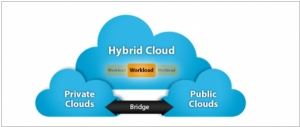
While emphasizing multi-cloud capabilities, IBM has consistently maintained its own public cloud infrastructure, catering to complex enterprise workloads commonly found on mainframes and other systems. The introduction of IBM Cloud Satellite represents an expansion of the IBM Public Cloud, enabling its operation within the customer's on-premises data center or at the network edge. Built on Red Hat OpenShift, IBM Cloud Satellite leverages the Kubernetes management environment, similar to other hybrid cloud solutions offered by IBM. The concept revolves around introducing a Location mechanism, which represents an instance of IBM Public Cloud deployed beyond the confines of IBM's data centers.
2021. Cloud infrastructure startup CloudNatix gets $4.5M

CloudNatix, a startup specializing in offering infrastructure solutions for businesses managing multiple cloud and on-premise operations, has successfully secured $4.5 million in seed funding. Leveraging open-source software such as Kubernetes and Prometheus, CloudNatix is compatible with major cloud providers as well as on-premise networks. It provides valuable assistance to DevOps teams in configuring and managing infrastructure that supports both legacy and modern cloud-native applications. Additionally, CloudNatix facilitates a smooth transition from on-premise networks to cloud services, allowing businesses to adapt and embrace cloud technology more seamlessly.
2020. Cast.ai nabs $7.7M seed to remove barriers between public clouds
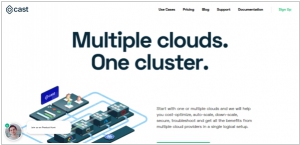
When deploying an application in the public cloud, it is common to rely on a single provider for all components. However, what if you had the flexibility to choose different components based on cost and technology? That's exactly what Cast.ai offers, and they have recently announced a substantial $7.7M seed funding round. With this service, you can leverage Amazon's RDS database and Google's ML engine, and the solution intelligently determines how to optimize their usage based on your specific requirements and pricing. Once you've defined your policies, Cast.ai takes care of distributing your application across the desired locations and providers, ensuring optimal performance and cost-efficiency for your application.
2020. IBM is acquiring APM startup Instana as for its hybrid cloud platform
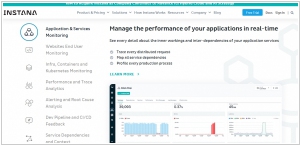
As IBM shifts its focus towards becoming a hybrid cloud management company, it has recently acquired Instana, a startup specializing in applications performance management with a cloud-native approach. This acquisition aligns with IBM's strategy as it enables the enhancement of its internal management tools, specifically in monitoring containerized environments running on Kubernetes. By integrating Instana into its portfolio, IBM aims to provide customers with effective management solutions for complex hybrid and multi-cloud environments.
2020. Cloudbolt announces $35M to help manage hybrid clouds

CloudBolt, a startup that aids companies in managing hybrid cloud environments, has announced a $35 million Series B investment today. The migration to cloud and DevOps, intended to simplify processes, has, in fact, introduced new intricacies. CloudBolt offers tools that assist companies in mitigating some of this added complexity. Their solutions enable automation, security, and optimization of workloads, regardless of the infrastructure tools or approach being utilized. Established in 2012, CloudBolt boasts approximately 200 customers.
2019. AWS Outposts brings Amazon cloud to data center
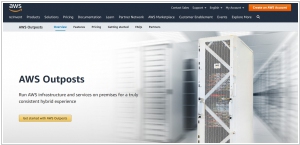
Amazon has officially launched Outposts, a private cloud hardware stack that can be installed in your own data center. Certain workloads, such as factory operations, require close proximity to compute resources due to low-latency requirements. Outposts aims to address this need, distinguishing itself from existing solutions by providing a seamless connection between on-premises hardware and the cloud. The hardware stack is equipped with a comprehensive range of services, including Amazon Elastic Compute Cloud (EC2), Amazon Elastic Block Store (EBS), Amazon Virtual Private Cloud, Amazon ECS, Amazon Elastic Kubernetes Service, and Amazon EMR. With this move, Amazon joins Microsoft and Google, who already offer their own hybrid cloud solutions to customers: Azure Arc and Google Anthos, respectively.
2017. VMware Cloud is now live on Amazon Web Services

Last autumn, VMware and AWS announced a strategic partnership, and now they have unveiled a unified solution for enterprises called VMware Cloud on AWS. VMware Cloud on AWS offers customers a seamlessly integrated hybrid cloud environment that maintains consistent architecture, capabilities, and operational experience across their on-premises vSphere-based infrastructure and AWS. Although AWS operates its own virtual machines (VMs), they differ from those used by VMware in data centers. This disparity poses management challenges for companies seeking to utilize both platforms. By enabling organizations to migrate to AWS while retaining their VMware VMs in the public cloud, they can enjoy the benefits of both worlds without encountering management complexities.
2017. Microsoft launches new tools to help enterprises move to its Azure cloud

According to Microsoft, a significant majority (80 percent) of the companies it engages with express a desire to adopt a hybrid cloud approach. In response to this demand and to facilitate their transition to the company's cloud platform, Azure, Microsoft is introducing a range of new tools. One of the key offerings is the Cloud Migration Assessment service, which enables companies to assess their current IT infrastructure and receive an estimate of the costs associated with migrating their services to Azure, along with potential savings. Moreover, Azure users now have the opportunity to receive a discount when they transfer their Windows Server licenses (with Software Assurance) to Azure. Known as the Azure Hybrid Use Benefit, this benefit can lead to savings of up to 40 percent, making it more enticing for existing Windows Server users to shift their workloads to the cloud. Additionally, for those interested in making this transition, the Azure Site Recovery (ASR) tool is receiving a minor update. While primarily designed to assist enterprises in coordinating their disaster recovery plans, it can also be leveraged for migrating existing virtual machines to Azure.
2016. Cisco is buying cloud management platform CliQr
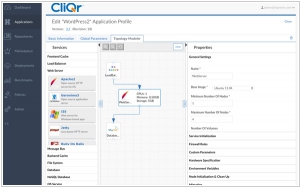
Cisco has revealed its acquisition of CliQr, a leading provider of application management solutions designed for hybrid cloud environments, for a sum of $260 million. Prior to the acquisition, CliQr had already collaborated with Cisco, integrating its solutions into several of Cisco's data center switching and cloud offerings. This purchase aligns with a broader trend observed among enterprise services companies, as they actively strengthen their hybrid cloud services. For instance, IBM recently established a significant partnership with VMWare to expand its hybrid cloud offering, complemented by acquisitions like Cleversafe. RedHat also joined this movement with its acquisition of Ansible in October of last year. Similarly, Microsoft's acquisition of Aorato aimed to enhance its security offerings for hybrid cloud environments. Cisco's acquisition of CliQr strategically positions the company to leverage CliQr's application management solutions and advance its capabilities in the hybrid cloud domain.
2015. VMware will make Google Cloud Platform available to its customers
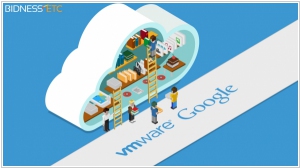
Google and VMware have joined forces to offer selected services from the Google Cloud Platform to VMware customers through vCloud Air, VMware's hybrid cloud platform. Later this year, vCloud Air users will gain access to Google's BigQuery analytics, Google Cloud Storage, as well as Google's Datastore and DNS services. Other Google services may also become available in the future. This collaboration can be seen as a win for both companies. VMware gains four valuable Google services, including the robust BigQuery analytics, which can help attract enterprise customers. Meanwhile, Google has the opportunity to showcase its top-notch intellectual property to the enterprise cloud users it seeks. Google aims to strengthen its hybrid cloud offerings, while VMware aims to demonstrate its cloud platform's compatibility with major players like Amazon Web Services (AWS).
2014. HP buys Eucalyptus to link Openstack and Amazon Web Services

HP, a company that is strategically aligning its cloud approach with OpenStack, has made the decision to acquire Eucalyptus, a supporter of an alternative open-source cloud technology. Notably, Eucalyptus CEO Marten Mickos, who was previously recognized for expressing opposition towards OpenStack, will now assume the role of Senior Vice President and General Manager of HP's cloud Business, overseeing the company's cloud efforts. While specific details regarding integration plans were not disclosed by company executives, they emphasized the significant value that Eucalyptus brings to HP, particularly in terms of deploying private clouds that seamlessly interact with Amazon Web Services (AWS). The experience gained from these AWS "use patterns" is expected to be advantageous for HP as it continues to advance its vision of OpenStack-based private, public, and hybrid clouds within enterprise accounts. In the enterprise cloud market, HP faces competition from Red Hat and IBM on the OpenStack front, as well as from VMware and Microsoft in the realm of proprietary cloud solutions.
2009. Amazon announced Virtual Private Cloud
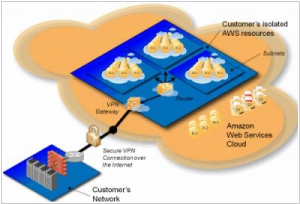
Amazon has introduced a new service called Amazon Virtual Private Cloud, which enables IT departments to establish a connection between a set of isolated AWS resources and their data center using a VPN connection. This innovative solution integrates traditional IT infrastructure with Amazon's EC2 cloud service, forming a hybrid cloud that offers both security and the benefits of cost-effectiveness and scalability. By offering this hybrid approach, Amazon aims to address the growing interest in private clouds while providing an endorsement for their own hybrid cloud strategy. It's important to note that VPC is currently in limited beta and does not yet support the S3 cloud storage service or other components of AWS.

